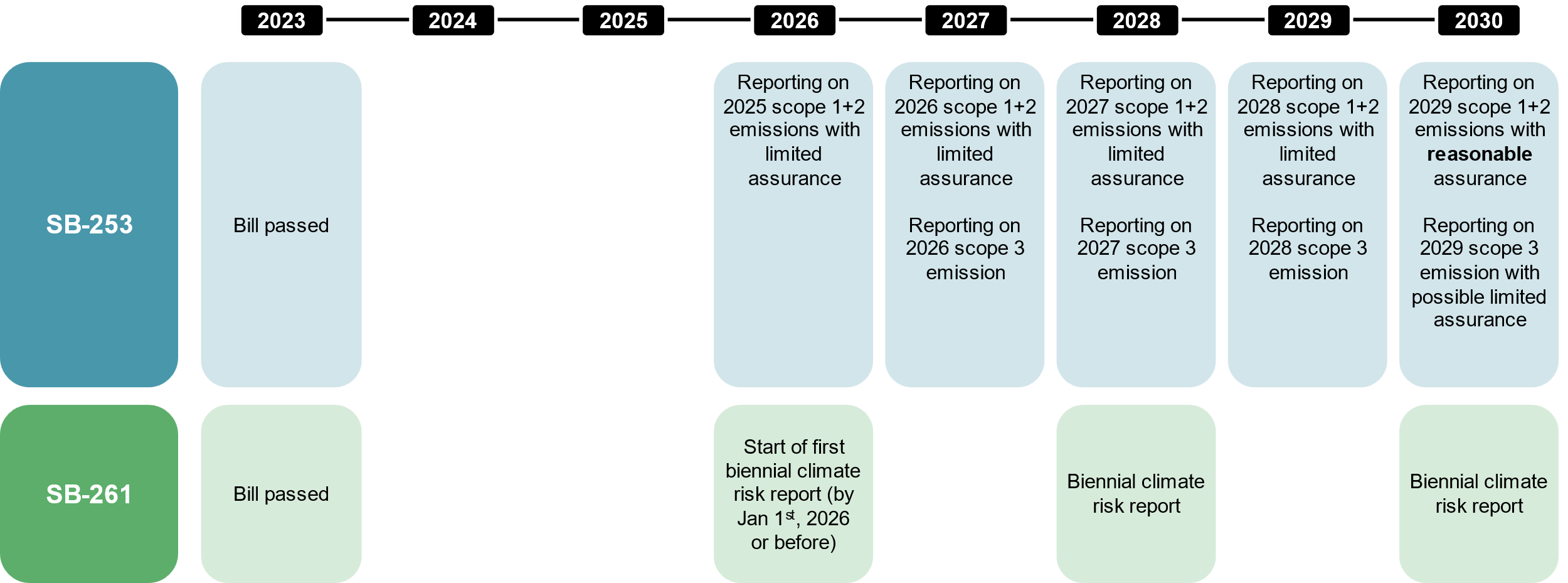Revenue
Revenue
An entity must exceed the specified revenue threshold to be covered by the climate laws. The thresholds are different for the two bills:
- SB 253: Total annual revenues in excess of $ 1 billion
- SB 261: Total annual revenues in excess of $ 500 million
The annual revenue figures include all revenue of the entity, not just revenue generated in California. A company that consolidates the revenues of its subsidiaries may also be in scope if it exceeds the thresholds. Applicability shall be determined based on the business entity’s revenue for the prior fiscal year.







